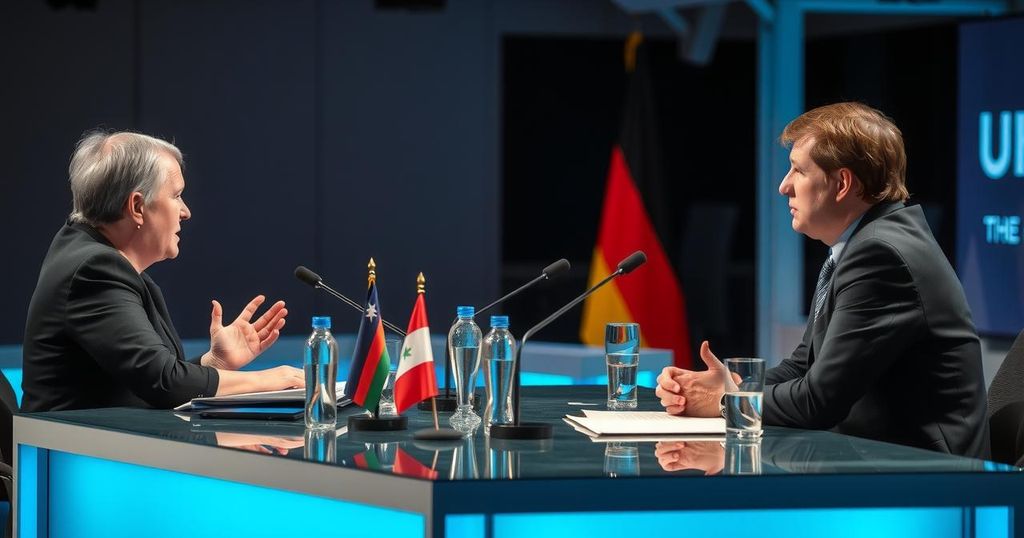German Chancellor Olaf Scholz has lost a confidence vote in the Bundestag, setting the stage for early elections in February 2025. Amidst internal coalition disputes that led to the departure of key partners, Scholz garnered only 207 votes in favor, falling short of the required majority. With economic concerns at a forefront and facing criticism from opposition leaders, the political landscape in Germany may undergo significant changes.
German Chancellor Olaf Scholz faced a significant political setback as he lost a confidence vote in the Bundestag, Germany’s lower house of parliament. Out of 717 members present, only 207 supported him, while 394 voted against him, and 116 members abstained. This outcome indicates a major decline in his support, falling well below the required majority of 367 votes needed for him to remain in power in the 733-seat chamber.
The vote, which positions Germany towards potential early elections in February, follows the recent collapse of Scholz’s three-party coalition government after a contentious split with Finance Minister Christian Lindner. Scholz’s decision to dismiss Lindner stemmed from repeated disagreements regarding economic revitalization strategies, culminating in the departure of the Free Democrats from the coalition. As a result, Scholz’s Social Democrats (SPD) and the Greens now find themselves without parliamentary majority.
Following the confidence vote, Germany’s President Frank-Walter Steinmeier has a three-week window to consider dissolving the Bundestag, which would necessitate elections within 60 days. Scholz emphasized the importance of these elections for the nation’s future, stating, “An election will determine if we, as a strong country, dare to invest strongly in our future… do we risk our cohesion and our prosperity by delaying long-overdue investments?” His comments reflect the urgency perceived by political leaders in the face of economic challenges.
Polling indicates that Scholz is trailing behind Friedrich Merz, the leader of the opposition Christian Democratic Union (CDU), who criticized the Chancellor’s handling of the economy by contending, “You are leaving the country in one of its biggest economic crises in postwar history.” Meanwhile, Vice Chancellor Robert Habeck of the Greens is also vying for leadership, as the political landscape shifts unpredictably amid rising support for the far-right Alternative for Germany (AfD).
As Germany prepares for the possibility of early elections, the next steps for Chancellor Olaf Scholz and the government will be closely scrutinized by both citizens and political analysts alike, assessing how the country will navigate through this critical political juncture.
The confidence vote faced by Chancellor Olaf Scholz is a significant political event that reflects the challenges within Germany’s coalition government, composed of the Social Democrats (SPD), the Greens, and the Free Democrats (FDP). Scholz’s leadership comes under scrutiny following his recent firing of Finance Minister Christian Lindner, a decision that resulted in the breakdown of cooperation among coalition partners. The outcome of the confidence vote could potentially reshape Germany’s political landscape and influence the timing of upcoming elections, where the economic performance of the country remains a central issue for voters.
Chancellor Olaf Scholz’s loss of the confidence vote underscores the fragility of his coalition government and the urgent need for political stability in Germany. As the nation looks towards potential early elections, the political dynamics will certainly play a crucial role in determining the future leadership and strategies for addressing the economic challenges. With the SPD currently trailing in polls, the upcoming weeks are pivotal for Scholz and his party as they seek to regain public confidence and navigate through political uncertainties.
Original Source: news.sky.com





